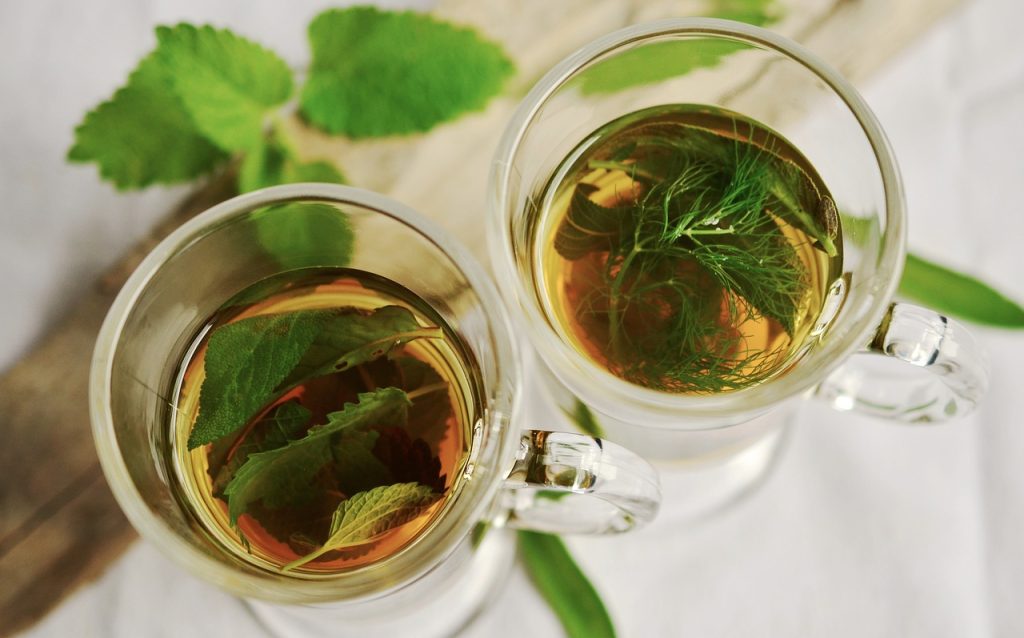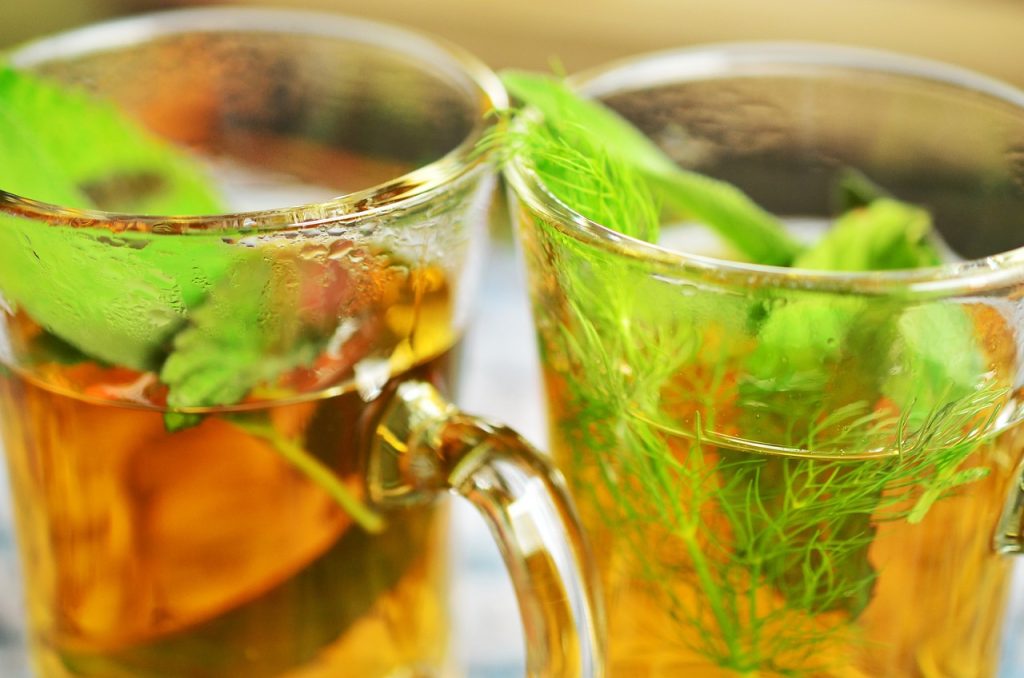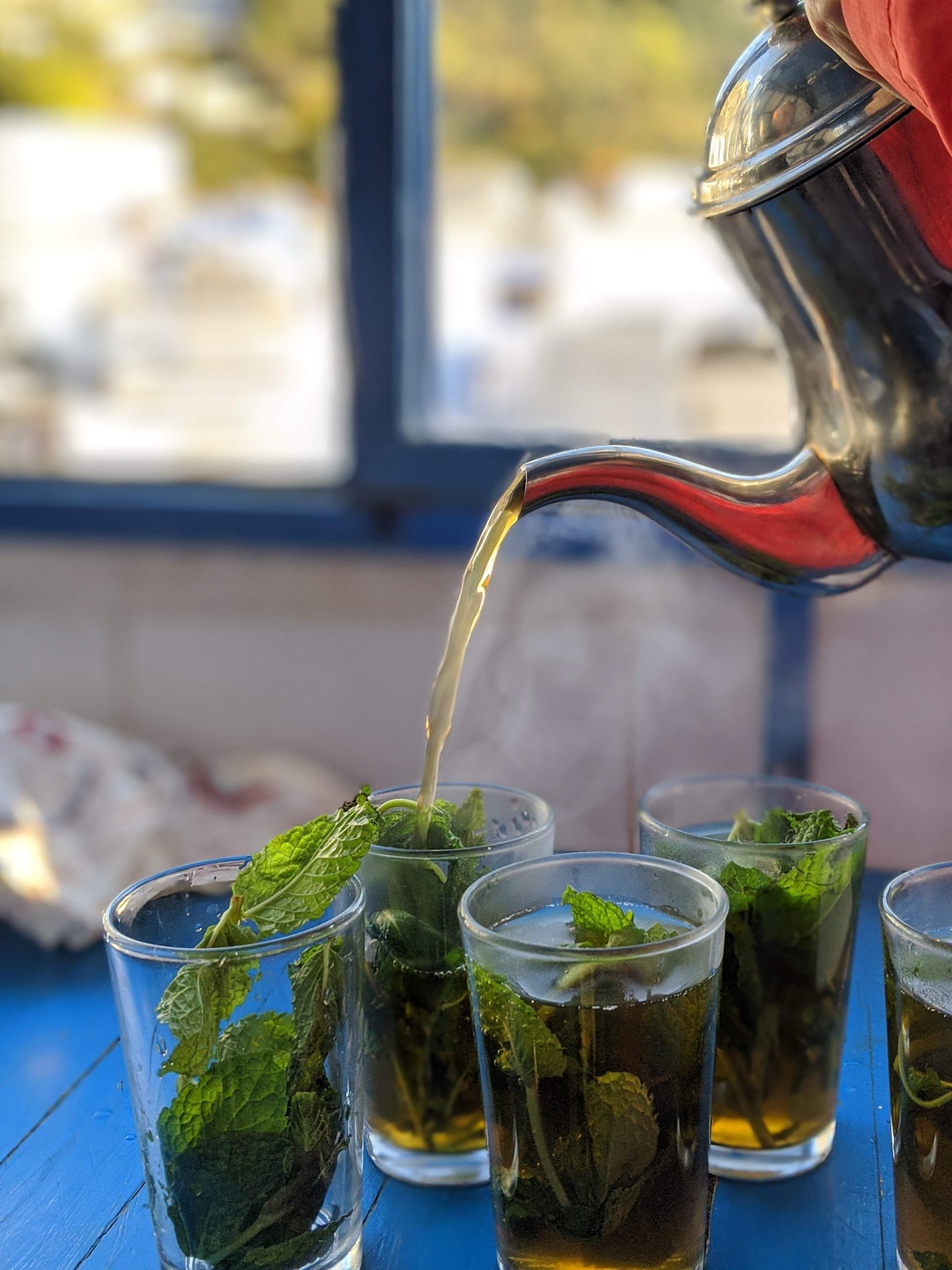Unlocking the Powerful Health Benefits of Peppermint Tea: Science-Backed Secrets of Mint Tea
If you think of tea as a soothing, aroma-filled beverage that offers an ideal way to wind down after a busy day, you’re not alone. Whether served hot or iced, an aromatic, soothing cup of tea is a popular choice for relaxation. And among the diverse herbal tea varieties, peppermint tea has garnered significant attention for its multitude of health benefits backed by science. Here, we explore the many benefits of drinking peppermint tea.

What are the Health Benefits of Drinking Mint Tea?
How Mint Tea Impacts Your Health
Mint tea, especially one brewed from aromatic peppermint leaves, is more than just a refreshing drink. It is a powerhouse of potential health benefits, thanks to its active ingredient, peppermint oil— a compound noted for its potent medicinal properties. From aiding digestion to combating sinus problems, drinking mint tea demonstrates a remarkable effect on health and wellbeing.
Potential Health Benefits of a Cup of Peppermint Tea
Whether you enjoy a cup of peppermint tea for its soothing scent or its invigorating and refreshing taste alone, you stand to benefit immensely from its health properties. The benefits of peppermint tea range from relieving headaches and migraines to alleviating symptoms of irritable bowel syndrome. The fresh mint leaves contain rosmarinic acid, a compound found in the mint family that assists with asthma and respiratory issues.
The Science behind the Health Benefits of Peppermint Tea
Science-backed benefits of peppermint tea reveal why this popular herbal tea infusion is much more than just a refreshing drink. Studies suggest that the peppermint oil in the tea leaves can help with a myriad of conditions, thanks to its antibacterial, antiviral, and anti-inflammatory properties. Additionally, the aroma of peppermint has been linked with improved cognitive function and reduced mental fatigue.
How Much Peppermint Tea Should You Drink?

Determining the Ideal Mint Tea Consumption Rate
While peppermint tea is a beneficial drink, moderation is key. How much peppermint tea should you drink? The answer is often subjective, depending on individual health profiles and tolerance levels. Generally, for most adults, drinking two to three cups per day can help harness the potential health benefits without causing unwanted side effects.
Effects of Drinking Too Much Peppermint Tea
Like any beneficial substance, consuming too much peppermint tea might lead to some negative impacts. Over-consumption may result in heartburn, dry mouth, nausea, or even cause some allergic reactions. Hence, understanding the healthy amount of peppermint in your tea is important.
Understanding the Healthy Amount of Peppermint in Your Tea
When brewing a healthy cup of peppermint tea, it’s essential to remember that a little goes a long way, thanks to the potent peppermint oil. Use fresh mint leaves or quality tea bags to ensure you’re getting the best quality. Overly strong tea may result in more pronounced side effects, especially in people sensitive to peppermint oil.
Is Spearmint Tea as Good as Peppermint Tea?

Comparing the Health Benefits of Peppermint Tea and Spearmint Tea
Peppermint and spearmint teas are both members of the mint family, but each offers unique health benefits. While peppermint tea is often noted for its digestive and pain-relieving effects, spearmint tea is rich in antioxidants and may help balance hormones and lower blood sugar levels.
Understanding the Differences Between Peppermint and Spearmint Tea
There are several differences between the two minty brews. Spearmint tea generally possesses a lighter, sweeter taste than its peppermint counterpart. The primary active compound in spearmint is carvone, which offers a distinct cooling effect. Peppermint extract contains menthol, which gives it a stronger flavor and its notorious cooling sensation.
Why You Might Choose Spearmint Tea Over Peppermint
Although peppermint tea offers numerous health benefits, some may prefer the milder flavor and cooling effects of spearmint to brew peppermint tea. Additionally, those potentially sensitive to menthol may find spearmint tea a better choice.
What are the Side Effects of Peppermint Tea?

Understanding the Health Risks Associated with Mint Tea
While the health benefits of peppermint tea are widely recognized, it’s important to remember that certain individuals may experience side effects like nausea and increased urination. Additionally, specific groups, such as pregnant or breastfeeding women, or those with kidney disorders, should consult their health care providers before adding mint tea to their diets.
Potential Negative Impacts of Drinking Too Much Peppermint Tea
Consuming large quantities of peppermint tea could lead to side effects like dizziness, heart palpitations, or dry mouth. It’s recommended to limit daily consumption and listen to your body’s signals. Then, you can enjoy the many health benefits while mitigating any adverse effects.
How to Avoid the Side Effects of Peppermint Tea
To avoid any potential negative impacts of peppermint tea, it’s advisable to start with small doses and track your body’s reaction. Also, those on medication should consult healthcare professionals, as peppermint tea could interact with certain drugs.
How Peppermint Tea Can Aid in Daily Health

Drink Peppermint Tea for Daily Wellness
Drinking peppermint tea regularly can be a great part of your daily wellness routine. Its soothing effect, coupled with a wide range of health benefits—from improved digestion to better mental clarity—makes it a valuable addition to a balanced lifestyle.
How Peppermint Tea Can Help You Maintain Good Health
Beyond its immediate soothing effects, peppermint tea can help in maintaining good health over the long term. Regular consumption may aid in managing stress levels, improving sleep quality, and contributing to overall mental health.
Exploring the Long-Term Benefits of Drinking Mint Tea
The long-term benefits of drinking mint tea, especially one made from fresh peppermint leaves, can be manifold—improving metabolism, enhancing immunity, aiding in weight loss, and promoting healthy skin. Thus, adding peppermint tea to your daily routine can have numerous positive impacts on your overall health.
###
Q: Is drinking tea good for health, specifically peppermint tea?
A: Absolutely, drinking tea can be extremely beneficial for health. Peppermint tea in particular offers a multitude of health benefits. The compounds in peppermint leaves contain menthol, which exerts a soothing effect on the body and mind. Plus, peppermint tea is naturally caffeine-free, making it a good choice for individuals seeking to limit their caffeine intake.
### ###
Q: Can the consumption of mint tea be good for digestion?
A: Yes, one of the benefits of mint tea is its ability to promote good digestion. The peppermintmay stimulate the digestive system, which can help alleviate symptoms of indigestion, bloating abdominal pain, and gas. However, if you’re allergic to mint, you should avoid peppermint tea and extracts.
### ###
Q: What makes peppermint tea different from green tea?
A: Both peppermint and green tea have their own unique health benefits. Peppermint tea is known for its digestive benefits and soothing properties, thanks to the compounds found in peppermint leaves. On the other hand, green tea is recognized for its high concentration of antioxidants and associated benefits for heart health and weight management. Both teas can be beneficial parts of a healthy lifestyle.
### ###
Q: Could the scent of peppermint from brewing tea have any benefits?
A: The scent of peppermint itself can have therapeutic benefits. Inhaling peppermint oil may help relieve headaches, improve mental focus, and have a soothing effect on the muscles of the gastrointestinal tract.
### ###
Q: How is peppermint tea made?
A: Peppermint tea is made by infusing the leaves of the peppermint plant in hot water. This can be achieved using fresh mint infusing peppermint leaves together, dried peppermint leaves or pure peppermint tea bags. For the most potent fresh mint tea, boiling the peppermint leaves in hot water is recommended.
### ###
Q: Why is mint tea considered good for sleep?
A: Mint tea, especially peppermint tea, can be good for sleep due to its natural sedative and anti-spasmodic properties. It helps in relaxing the muscles and reducing stress, which in turn may help promote good sleep.
### ###
Q: Are there any benefits to applying peppermint oil externally?
A: Yes, applying peppermint oil may help to soothe skin irritations, aid digestion, relieve muscle pain, and even alleviate headaches when applied to the temples or wrists. However, it’s crucial to remember that some people may be allergic to mint, and they should avoid applying peppermint oil.
### ###
Q: What important components are found in peppermint leaves?
A: Peppermint leaves contain a variety of beneficial compounds, including Menthol, Rosmarinic acid, and other antioxidants. These components contribute to mint teas healthy benefits.
### ###
Q: What precautions are necessary when taking peppermint supplements or oil capsules?
A: When taking peppermint supplements or peppermint oil capsules, it’s important to follow the recommended dosage instructions. Overuse can lead to adverse effects such as heartburn, allergic reactions, or nausea. If you’re allergic to mint, you should avoid taking peppermint supplements or oil capsules.
### ###
Q: Can drinking a cup of mint tea every day benefit my overall health?
A: In general, regularly drinking a cup of mint iced tea, could bring several benefits. Besides being a refreshing beverage, it can aid with digestion, ease headaches, and improve sleep quality. However, individual responses to peppermint tea can vary, and it should be consumed as part of a balanced diet. Always consult a healthcare provider if you have any concerns.

